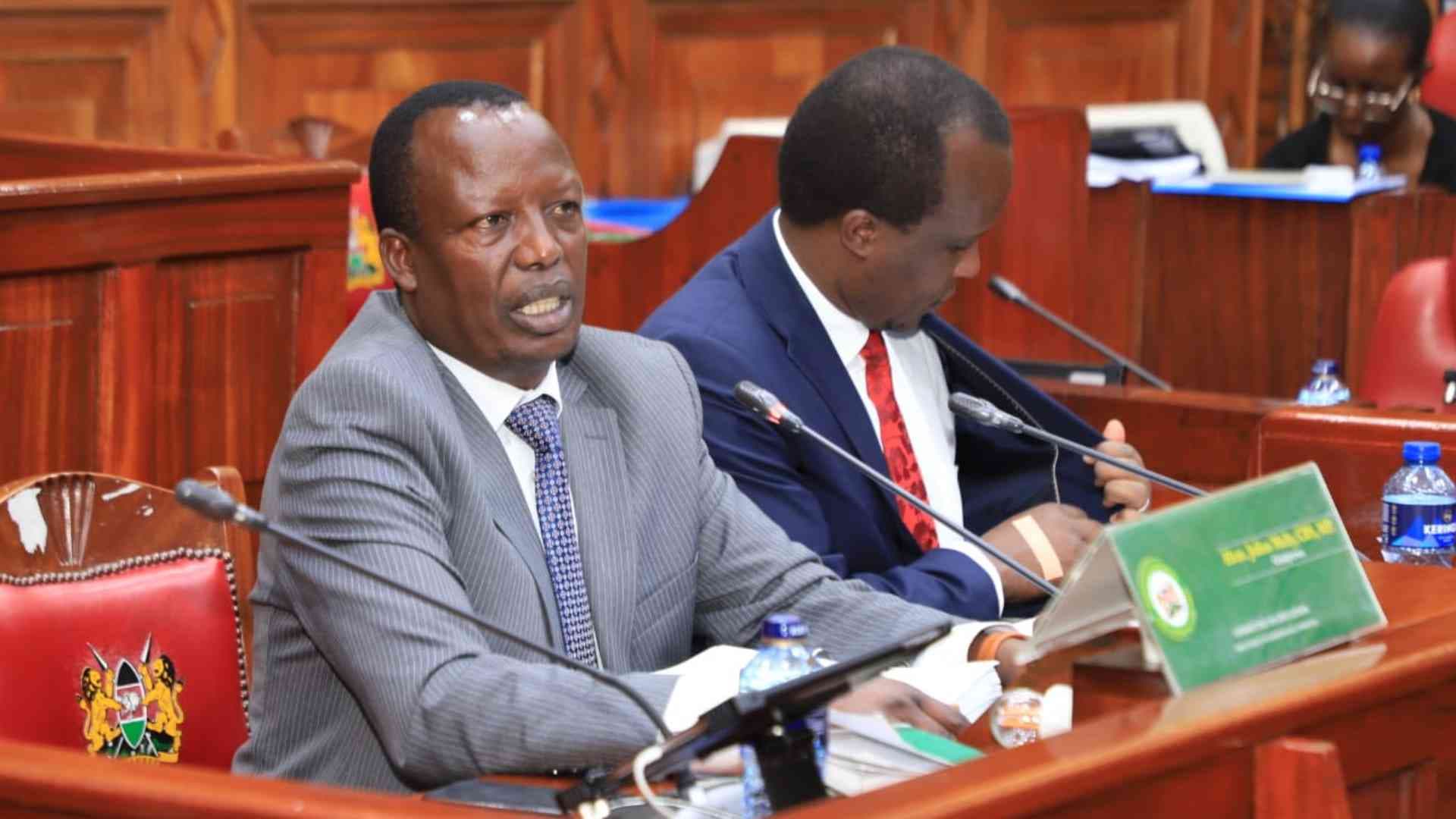We're loading the full news article for you. This includes the article content, images, author information, and related articles.
A government probe into historical claims has frozen the release of KSh 58.8 billion owed to private universities, deepening a financial crisis that threatens the stability of Kenya's higher education sector.

Private universities in Kenya will have to wait longer for the KSh 58.8 billion in unpaid fees for government-sponsored students, as the payment is now contingent on a comprehensive verification of the claims. Education Cabinet Secretary Julius Ogamba confirmed on Friday, November 21, 2025, that the Ministry of Education has forwarded the substantial bill to the National Treasury's Pending Bills Verification Committee to authenticate the claims before any disbursement can be made.
The announcement comes after the Kenya Association of Private Universities (KAPU) raised the alarm over the mounting debt, which has accumulated since 2016. This was the year the government began placing students in private institutions through the Kenya Universities and Colleges Central Placement Service (KUCCPS) under the Differentiated Unit Cost (DUC) model, promising to cover a significant portion of their tuition fees.
Appearing before the National Assembly's Departmental Committee on Education earlier in the week, KAPU Chairperson Prof. Stephen Mbugua Ngari stated that the delayed payments, spanning the 2016/2017 to 2023/2024 academic years, have plunged the institutions into a severe financial crisis. "The delayed disbursement of funds has forced most private universities to eat into their reserves to finance the education of government-placed students. This has financially crippled our institutions," Prof. Ngari told the committee. "This is not just a financial issue—it threatens the sustainability of private higher education in Kenya."
The payment impasse is compounded by a parallel inquiry from Parliament. The National Assembly's Education Committee, chaired by Tinderet MP Julius Melly, has raised questions regarding the accuracy of the student enrollment data submitted by the universities. During a session at the Catholic University of Eastern Africa on Tuesday, November 18, 2025, Melly flagged what he described as inconsistencies in the number of government-sponsored students the universities claim to host.
"When I look at your documents, you have a very large government-sponsored student population across all private universities," Melly stated, demanding clarification on whether the figures had been verified by the Ministry of Education and the Commission for University Education (CUE). The committee has directed KAPU to consolidate and submit verified data on enrolment, deferrals, and graduation rates for all government-sponsored students since 2016 and to engage directly with the Treasury's pending bills committee to authenticate their claims.
The financial strain is having a tangible impact on the operations of the 34 affected private universities. Institutions are reportedly relying on expensive bank loans and diverting funds from development projects to cover operational costs. Some of the hardest-hit universities include Mount Kenya University, which is owed KSh 12.9 billion, Kabarak University (KSh 6.8 billion), KCA University (KSh 6.67 billion), and the Catholic University of Eastern Africa (KSh 4.3 billion), according to documents presented to Parliament.
Prof. Ngari emphasized that revenues meant for reinvestment into improving quality, research, and student services are being used to plug the financial gap left by the government's non-payment. This situation mirrors a broader funding crisis across the higher education sector, with public universities also facing pending bills amounting to KSh 85 billion as of July 2025.
In his statement to the Nation, CS Ogamba maintained that the ministry is committed to finding a lasting solution. "We are continuously engaging stakeholders including the National Treasury and National Assembly as part of ongoing sector consultations aimed at exploring appropriate alternatives and sustainable financing options for both public and private Universities," he said. However, the CS did not provide a specific timeline for the completion of the verification process or the subsequent payment, stating that timelines would be considered after consultations with relevant agencies are concluded.
Despite assurances, ministry officials, including Higher Education Principal Secretary Beatrice Inyangala, have remained largely silent on the matter, with multiple media inquiries going unanswered. For now, the fate of the KSh 58.8 billion hangs in the balance, leaving private universities in a precarious position as they await the outcome of the government's extensive and multi-faceted probe. The resolution of this debt is critical not only for the survival of the institutions but also for the thousands of Kenyan students whose education depends on their stability.
Keep the conversation in one place—threads here stay linked to the story and in the forums.
Sign in to start a discussion
Start a conversation about this story and keep it linked here.
Other hot threads
E-sports and Gaming Community in Kenya
Active 9 months ago
The Role of Technology in Modern Agriculture (AgriTech)
Active 9 months ago
Popular Recreational Activities Across Counties
Active 9 months ago
Investing in Youth Sports Development Programs
Active 9 months ago
Key figures and persons of interest featured in this article